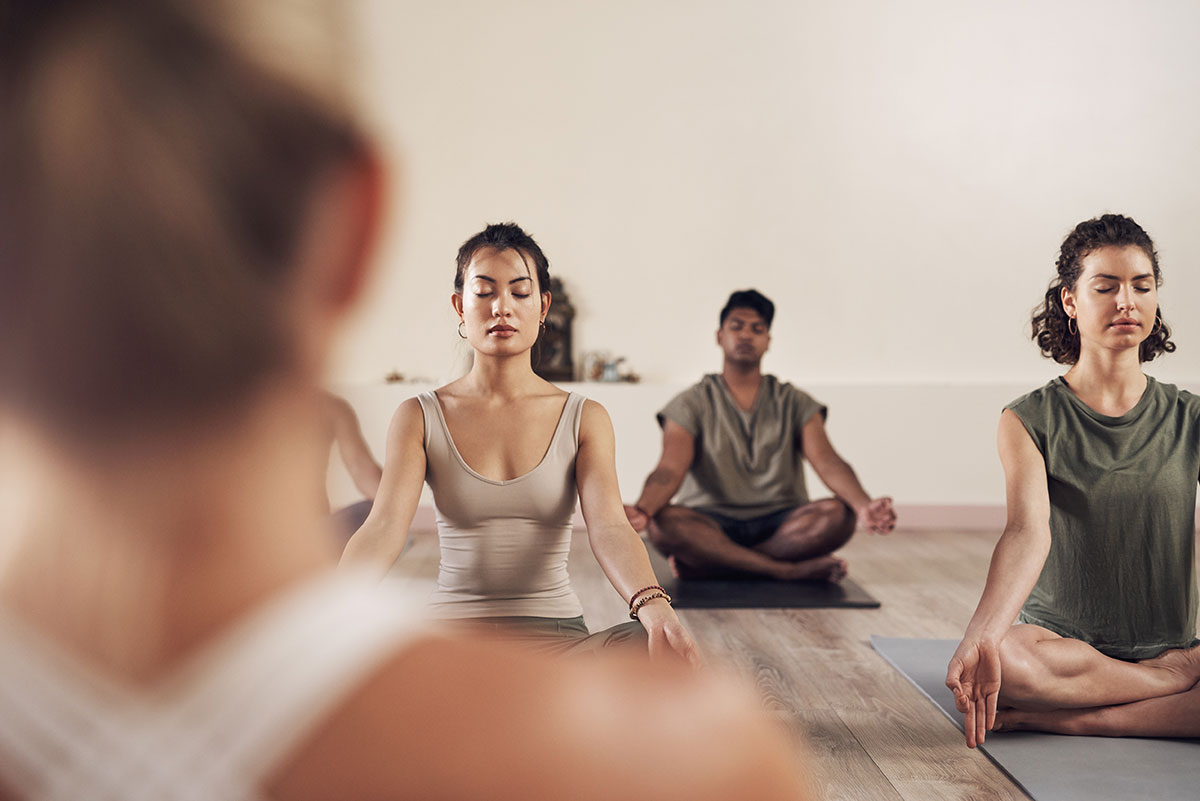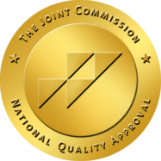
Holistic Medicine for Addiction
Holistic Medicine is More Than a Buzzword, Learn Why Here
What is Holistic Medicine?
Holistic medicine involves one\'s mind, spirit, and body and focuses on the prevention, diagnosis, and treatment of illness. A foundational principle in holistic medicine's realm is keeping the physical, mental, and emotional states balanced, giving each area its required attention while also sustaining them.
What Does Holistic Mean?
According to the Merriam Webster Dictionary, the word holistic \"was coined by South African soldier and statesman Jan Christian Smuts in the 1920s as a philosophical term.1
Smuts, who-aside from war and politics-was a student of natural science, used the term to describe his complex philosophy regarding the organization of nature.\"
Holistic refers to viewing the universe in its natural order, paying close attention to the organisms and the systems as opposed to the atoms and the molecules.
Holistic Medicine vs. Traditional Addiction Treatment
When treating addiction, holistic medicine and practice can reduce stress. In turn, stress reduction reflects drug misuse, as stress is a significant driver of addiction.2
Traditional western medicine, while able to provide several benefits, also comes with unwanted side effects.
Types of Holistic Medicine Used in Rehab
Holistic recovery methods incorporate new solutions or habits to address one\'s problems. Holistic medicine focuses on creating healthy practices and thoughts, which in turn can replace unhealthy actions. Holistic practices may be an effective tool to fight addiction and encourage recovery when used alongside medical assistance, prescriptions, counseling, etc. Holistic treatments for addictions include:
- Yoga: a physical activity that combines exercise and meditation, therefore aiding the mind and the body. Yoga and mindfulness reduce stress and negative emotions, and this practice can drive forward a sense of self-control and self-awareness.
- Mindfulness Meditation: a practice that works with mindfulness and focuses on promoting mental clarity and stability. Mindfulness is meant to make one more aware of the cravings that could cause a relapse.
- Fitness: a lack of exercise can lead to a higher risk of anxiety and depression. Studies have shown that activity can help maintain both physical and mental health.4
- Diet and nutrition: eating healthy and balanced meals during recovery can lead to better health overall.3
- Life skills therapy: helps teach clients to be self-sufficient when recovering from addiction. Life skills therapy increases independence by teaching essential everyday skills such as cooking, cleaning, budgeting, exercising, healthy dieting, job searching, relationship building, and good communication.6
- Acupuncture: a practice that uses needles to stimulate different parts of the body. Acupuncture can be helpful to heroin or opioid addicts.
- Neurofeedback: refers to a reward-based system where one can train the brain to recognize negative brainwave patterns. Through neurofeedback, one can replace the adverse brainwaves with balanced and positive brain activity. With practice, neurofeedback can help break the negative emotional cycle and reduce unhealthy coping mechanisms.5
How Effective is Holistic Medicine in Rehab?
For centuries, holistic healing and therapies have treated illnesses including addiction. According to Psychology Today, "When addressing an addiction, all holistic techniques begin with the same basic philosophy: people develop addictions to correct an "imbalance" within them.\" 6 The goal of holistic treatment is to restore the body\'s natural state naturally.
Holistic Therapy Facts
- Almost one-third of American medical schools, including Harvard, Yale, John's Hopkins, and Georgetown Universities, now offer coursework in holistic methods.
- One out of three drugs prescribed in Germany is an herb.
- The World Health Organization estimates that between 65 to 80 percent of the world's population (about 3 billion people) rely on holistic medicine as their primary form of health care.
- Approximately $22 million of U.S. government money has already been spent on alternative medical research since 1992 at the National Institutes of Health and Public Health Services.
- The American Medical Association (AMA), in Resolution #514, encourages members to educate themselves on holistic medicine and to participate in studies of its practices.
- In 1991, Americans made more visits to unconventional health care providers (425 million) than to conventional doctors (388 million).
- The World Health Organization estimates that between 65 to 80 percent of the world's population (about 3 billion people) rely on naturopathic or homeopathic medicine as their primary form of health care.
- Worldwide, only 10 to 30 percent of people use traditional medicine, 70 to 90 percent use naturopathic and homeopathic health care.7
Studies
Holistic health is a common practice in many other parts of the world. However, in the United States, it is intensively studied, with controversial results. Research from The National Institutes of Health report:
Acupuncture Study
A 2014 randomized controlled trial of 67 military veterans in recovery from substance use disorder found that participants\' craving and anxiety levels decreased significantly after a single session of acupuncture or relaxation response intervention, suggesting there may be some value in attending regular acupuncture or relaxation response intervention sessions."8
Mindfulness Meditation Therapy Study
A 2016 review found that mindfulness-based interventions effectively reduce pain intensity, improve functional status, improve pain-related psychological consequences, and improve quality of life; they can also be used as adjunct therapy aimed at improving health-related quality of life in individuals with substance use disorders interested in self-management strategies. (Strength of Recommendation: B) Further, in smokers, mindfulness training used as adjunct therapy with pharmacotherapy shows efficacy in maintaining abstinence comparable to the standard of care.\"8
Music Therapy Study
A 2014 randomized controlled trial involving 286 individuals who successfully completed initial treatment for substance use disorders found that compared with treatment as usual, participants assigned to receive mindfulness-based relapse prevention (MBRP) and cognitive-behavioral relapse prevention (RP) approaches reported a significantly lower risk of relapse to substance use and heavy drinking. Further, among those who used substances, those in the MBRP and RP groups had significantly fewer days of substance use and heavy drinking at the 6-month follow-up.\"8
Although holistic health alternatives are highly controversial amongst traditional medical health professionals, holistic health is far from new findings or results. The research shows effective recovery from various addictions.
Combining Holistic Healing and Traditional Addiction Treatment
The combining of holistic and traditional addiction treatment is called \"Integrative Medicine.\" Studies report that over 30% of American adults use health care approaches outside of conventional medicine.9
Doctors are also embracing evidence-based alternative therapies, often combining them with mainstream therapies to treat disease and maintain health - an approach called integrative (in-tuh-GRAY-tiv) medicine.\"
How the Two Approaches Complement Each Other
Integrative medicine practices use conventional practices with alternative, non-conventional therapies. The non-conventional therapies are divided into classified groups according to the National Center for Complementary and Integrative Health (NCCIH).9 The non-conventional groups include:
Natural Products
Natural products include natural dietary supplements and herbal remedies. These include herbs like ginseng, ginkgo, echinacea, and dietary supplements like sulfate and glucosamine.
Mind and Body Practices
Mind and body practice is meant to strengthen the connection between the mind and body so the two can better work together. Examples of mind and body practices include prayer, yoga, meditation or relaxation, and animal-assisted therapy.
Other Integrative Approaches
Further integrative approaches to health focus on systems that stem from philosophy, rather than focusing on one practice. This can include ancient healing systems which existed before conventional Western medicine such as Ayurveda from India and traditional Chinese medicine. Another example is naturopathy, which focuses on noninvasive treatments to help the body heal on its own. Naturopathy includes tactics such as massage, acupuncture, herbal remedies, exercise, and lifestyle counseling.
Resources
- https://www.verywellhealth.com/holistic-health-4014763
- https://www.merriam-webster.com/words-at-play/wholistic-word-origin-and-use#:~:text=Viewing%20the%20universe%20in%20terms,sum%20of%20the%20parts%20through
- https://www.psychcongress.com/article/explore-holistic-therapies-addiction-treatment
- https://fitness.edu.au/the-fitness-zone/exercise-as-part-of-a-holistic-approach-to-health/
- https://www.brainforestcenters.com/news/everything-you-need-to-know-about-neurofeedback-therapy
- https://www.psychologytoday.com/us/articles/199609/how-quit-the-holistic-way
- https://www.mayoclinic.org/tests-procedures/complementary-alternative-medicine/in-depth/alternative-medicine/art-20045267
- https://www.disabled-world.com/medical/alternative/holistic/care-statistics.php
- https://www.nccih.nih.gov/health/providers/digest/mind-and-body-approaches-for-substance-use-disorders-science

